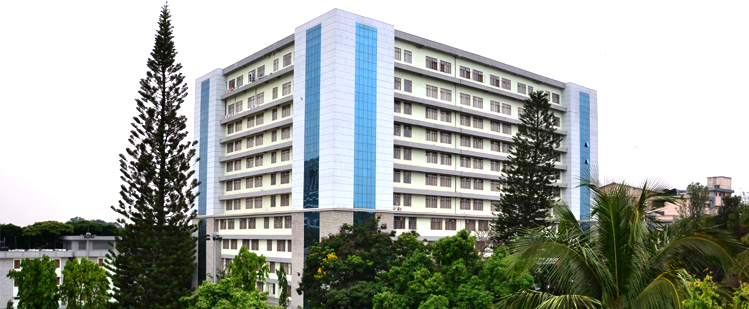


Course Code: MSW066
Course Title: Substance and Technology Addiction
Total Credit: 2 Total hrs: 45
Course Type: Open Elective
Course Description: Addiction studies are designed to help students to develop an understanding of substance and technology (behavioral) addictions from bio-psychosocial perspective. This paper focuses on familiarizing the students about its various concepts, developmental process and effects. Students will examine both disorders pertaining to substance and technology (behavioral). There will also be a focus on vulnerable populations to problematic use of substance and technology. The consequences of addictions will be studied at the individual, academy, daily routine life, occupational, family, community and societal levels. This course will draw on current research in the field of addictions, and will emphasize critical thinking and analysis of the current controversies in the field. The students will have an overview of the theories/models/frameworks adopted in the area of substance and technology/Internet/ addiction.
Course Objectives:
Course Learning Outcome: This course will familiarize the students with the concepts related to use, problematic use, abuse, dependence /addiction to technology and substances. Students will gain insight pertaining to its developmental factors, models/approaches/theories, signs and symptoms, effects, treatment and recovery process. The paper will further develop critical thinking ability among students about the epidemic of this new phenomenon (Internet Gaming Addiction) and the current controversies in the field of technology/Internet Addiction across the globe.
|
Units |
Content |
Hours
|
|---|---|---|
|
Unit 1 |
Substance and Technology Addiction Concept, terminology (Use, Problematic use, Abuse, Dependence/Addiction to Technology/Internet/ Mobile, other electronic gadgets, and substances), historical development, growth, its prevalence, sub-types, signs and symptoms, and overview of behavioral addiction. Similarity and Differences between substance and technology addiction. |
15 |
|
Unit 2 |
Factors and Models/Approaches/Theories related to Substance and Technology Addiction Protective and risk factors Etiological perspectives of substance and technology (behavioral) addiction. Introduction to the Bio-psychosocial model of substance and technology. |
10 |
|
Unit 3 |
Effects of Substance and Technology Addiction Effects of usage, abuse/addiction of substance and technology at different levels – personal, routine life, academic, family, social and occupation. |
10 |
|
Unit 4 |
Assessment and Treatment Modalities of Substance and Technology Addiction: Diagnostic tools and other instruments to assess substance and Internet/Technology addiction. Psychosocial and pharmacological therapies pertaining to technology addiction. Recovery process and outcomes pertaining to technology addiction |
10 |
Essential Reading
American Psychiatric Association (1994), Diagnostic Criterion from DSM-IV. Washington DC: American Psychiatric Association,.
Ahuja, N. (2002). A short textbook of psychiatry. New Delhi: Jaypee Brothers Medical Publishers (P) Ltd.
Kaplan, H.L., Freedman A.M. & Saddock B.J. (1980). Comprehensive Textbook of Psychiatry. Baltimore/ London: Williams & Wilkins.
World Health Organization (1992). The ICD-10 classification of mental and behavioral disorders: Clinical description and diagnostic guidelines. Oxford University Press.
Young, K. S. (1997). Internet Addiction: Symptoms, evaluation, and treatment. Innovations in Clinical Practice, 17
Recommended Reading
American Psychiatric Association. (2013). Diagnostic and Statistical Manual of Mental Disorders (5th ed.). Washington, D.C: American Psychiatric Association.
Grant, J.E., Brewer, J.A., Potenza, M.N. (2006). The neurobiology of substance and behavioural addictions. CNS Spectr, 11(12):924-930.
Miller, W., Rollnick, S. (2002). Motivational interviewing. 2nd Edition. New York and London: Guilford Press.
Prochaska, J.A., DiClemente, C.C., & Norcross, J.C. (1992). In search of how people change. Applications to addictive behaviour. Am. Psych.47: 1102-1114.
|
Bangalore Central Campus
The Office of Admissions,
CHRIST (Deemed to be University), Hosur Road,
Bengaluru - 560 029, Karnataka, INDIA
Ph. No: +91 92430 80800
Ph. No: +91 80 4012 9400
Email IDs
Indian candidates: admissions@christuniversity.in
NRI candidates: nri.admission@christuniversity.in
International: isc.admission@christuniversity.in
|
Bangalore Bannerghatta Road Campus
CHRIST (Deemed to be University) Hulimavu, Bannerghatta Road, Bengaluru - 560 076, Karnataka, INDIA Ph. No: 080 4655 1306
Email: admissions.bgr@christuniversity.in |
|
Bangalore Kengeri Campus
CHRIST (Deemed to be University)
Kanmanike, Kumbalgodu, Mysore Road, Bengaluru - 560 074, Karnataka, INDIA
|
Bangalore Yeshwanthpur Campus
CHRIST (Deemed to be University)
Nagasandra, Near Tumkur Road,
Bengaluru 560 073, Karnataka, INDIA |
|
Delhi NCR Campus
CHRIST (Deemed to be University),
Mariam Nagar, Meerut Road,
Delhi NCR Ghaziabad - 201003
Ph. No: 1800-123-3212
|
Pune Lavasa Campus
CHRIST (Deemed to be University),
Christ University Road, 30 Valor Court,
PO Dasve Lavasa, Mulshi, Pune - 412112, Maharashtra
Ph. No : 1800-123-2009,
Email: admission.lavasa@christuniversity.in |
Dharmaram College Post, Hosur Road, Bengaluru - 560029,
Karnataka, India
Tel: +91 804012 9100 / 9600
Fax: 40129000
Email: mail@christuniversity.in
Web: http://www. christuniversity.in
EXCELLENCE AND SERVICE
CHRIST (Deemed to be University) is a nurturing ground for an individual's holistic development to make effective contribution to the society in a dynamic environment.